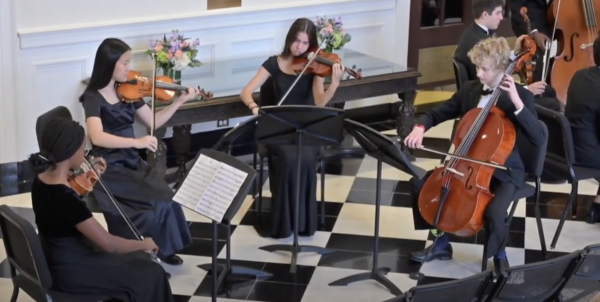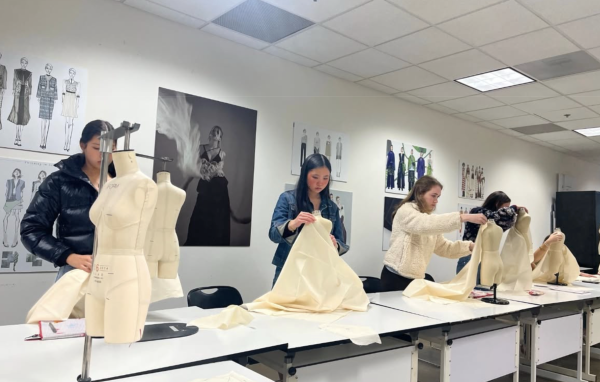Westminster alumnus writes acclaimed musical
After a multi-year hiatus due to COVID-19, the critically acclaimed Painless: The Opioid Musical began touring in Michigan high schools. The musical, written by Westminster alumnus Jacob Ryan Smith (‘16), is centered around opioid addiction and recovery. With the goal of educating high schoolers around the country about opioid abuse, Painless has been included in the curricula of Michigan high schools to enrich education surrounding opioids.
After the show’s highly successful first performance in September 2022 at Community High School, Painless is now set to tour all Michigan high schools in the spring of 2023. The musical has even been featured on The Today Show, which commended its use of music as a tool for educating high schoolers and promoting conversation about opioids.
In order to write the musical, Jacob Ryan Smith was inspired by true stories of recovery from opioid addiction. He interviewed numerous individuals from the organization Families Against Narcotics, and real firsthand accounts were transcribed into song form, thus becoming the basis of Painless. Rather than the stereotypical “drugs are bad” educational content that already exists, Jacob Ryan Smith aimed to create something that would both be engaging and convey a powerful message.
At Westminster, students also find that drug awareness assemblies are rarely engaging.
“One aspect of a typical drug awareness assembly that might discourage students from taking advice from it is that it’s compulsory, and students may easily become bored,” said junior Albert Tang. “This problem is worsened if the audience sits in a place like McCain, where the people speaking are very spatially separated from a large portion of the audience who sit far away, which could encourage people zoning out.”
Musicals such as Smith’s Painless: The Opioid Musical can easily remedy this issue. In addition to being more interesting than assemblies, Westminster students view musicals as a more persuasive medium for spreading drug awareness.
“The music could evoke some sentimentality that might not be possible in a regular assembly if the piece is very-well composed; this emotional response could lead to action,” said Tang.
Painless: The Opioid Musical begins with a scene familiar to all high school students: high schoolers are forced to attend a required drug awareness assembly and are bored by it. However, as the musical progresses, the high school students begin to realize the importance and relevance of the ongoing crisis in their own lives. The cast consists of characters who are teens of similar age to the audience and is intended to be one that high schoolers can relate to.
“The musical form would be something more lively because, one, there is music involved, which would be a surprise for this sort of assembly, and two, if this awareness program is in the narrative of a musical theater performance, then it could be more inspiring due to the focus on one narrative,” said Tang.
While speakers in these assemblies use personal narratives to build trust with the crowd, these stories may be uncomfortable to share and end up simply distancing the crowd from the speaker further. A musical can combat this by allowing the audience the liberty of interpretation.
“A performance could encapsulate the narrative more personally, which could result in more self-guided action to solving the issue,” Tang stated.
Tang additionally believes that Westminster can push to incorporate more musical experiences to enrich future education.
“Music can reveal aspects of widespread sentiment and style of a time period. By listening to some music in class, students can hear for themselves what the music of a time period or of a culture sounds like,” said Tang. “This experience is much more permanent than reading a description of a type of music in a textbook.”
While Jacob Ryan Smith (‘16) created and composed almost the entire musical on his own, the musical was the culmination of hard work and collaboration across many organizations, including Michigan OPEN, SMTD, the U-M School of Nursing and U-M School of Public Health. Smith, who wrote most of the musical at age 19 for members of University of Michigan’s musical theater department to perform, intended to create a musical that would engage with teenagers much better than existing drug awareness resources. Rather than an older cast playing a musical written by an older composer, Painless is completely produced by people not much older than the teenage audience—all while being based on true stories.
Edited by Alexandra Kent




